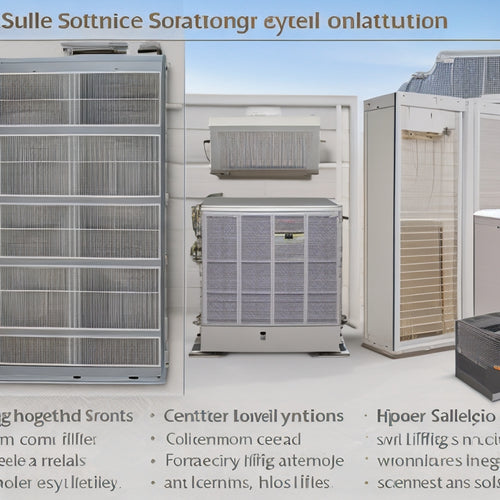
Rev Up Savings: Oregon's Electric Vehicle Incentives
Share
Oregon offers a range of incentives to encourage electric vehicle (EV) adoption, reducing environmental impact and costs for buyers. The Oregon Clean Vehicle Rebate and Charge Ahead Rebate programs provide rebates of $750 to $7,500, based on battery capacity and income level. The federal EV tax credit offers up to $4,000 or 30% of the vehicle price, with income and price restrictions. Oregon also invests in expanding its EV charging infrastructure, committing $100 million over five years. With multiple incentives available, EV owners in Oregon can greatly reduce ownership costs, making eco-friendly transportation more accessible; exploring these opportunities further can reveal even more benefits.
Key Takeaways
• Oregon offers rebates of $750 to $7,500 for EV purchases, with higher incentives for low- to moderate-income buyers.
• The federal EV tax credit program provides up to $4,000 or 30% of the vehicle price, with income restrictions and price caps.
• Oregon is investing $100 million over five years to expand its EV charging station network, with a focus on disadvantaged and rural communities.
• Used EV purchases are supported with up to $5,000 for low- to moderate-income buyers through the Charge Ahead Rebate program.
• Oregon EV owners can benefit from combined incentives of up to $15,000, making EV ownership more accessible and eco-friendly.
Oregon's EV Incentive Programs
Oregon's EV incentive programs, comprising the Oregon Clean Vehicle Rebate and Charge Ahead Rebate programs, offer rebates ranging from $750 to $7,500 based on battery capacity and income level for new EV buyers.
These programs aim to accelerate EV adoption, reducing Oregon's environmental impact by promoting a cleaner transportation sector.
The Charge Ahead Rebate supports used EV purchases with up to $5,000 for low- to moderate-income buyers, expanding access to eco-friendly transportation.
By incentivizing EV adoption, Oregon's programs contribute significantly to a greener future, reducing greenhouse gas emissions and air pollution.
As the state works towards meeting its environmental goals, these incentives play an essential role in promoting the shift to electric vehicles.
Federal EV Tax Credit Updates
The new federal EV tax credit program, effective until December 2032, introduces significant updates, including the removal of the vehicle cap and the introduction of a tax credit for used EVs, offering up to $4,000 or 30% of the vehicle price.
This expansion aims to increase EV adoption, making environmentally friendly transportation more accessible. Importantly, EV tax credit eligibility is subject to income restrictions, ensuring that the benefits are targeted towards those who need them most.
Specifically, the program imposes price caps on eligible vehicles, ranging from $55,000 for smaller vehicles to $80,000 for vans, SUVs, and pickup trucks. By understanding these updates, Oregonians can better navigate the federal incentives available to support their shift to electric vehicles.
Charging Infrastructure Support
Through investments in charging infrastructure, Oregon is positioned to significantly expand its network of electric vehicle charging stations. The Oregon Department of Transportation's Community Charging Rebates Program is committing $100 million over the next five years to enhance community engagement and improve rural accessibility to EV charging infrastructure.
Key features of the program include rebates ranging from $4,250 to $5,500 per Level 2 charging port, with 70% of funds reserved for disadvantaged and rural communities. The funding will be distributed on a first-come, first-served basis, supporting the growth of EV charging infrastructure in Oregon and promoting a greener future.
Savings for EV Owners
Furthermore, EV owners in Oregon can take advantage of various incentives, including rebates and tax credits, to significantly reduce the overall cost of EV ownership. Through the Oregon Clean Vehicle Rebate and Charge Ahead Rebate programs, new EV buyers can receive rebates ranging from $750 to $7,500.
Additionally, used EV purchases can be supported with up to $5,000 for low- to moderate-income buyers. Federal tax credits of up to $7,500 are also available, with income limits and price restrictions applying. These incentives offer substantial cost benefits, making EV ownership more accessible.
Additionally, EVs provide eco-friendly advantages, contributing to a greener future. By utilizing these incentives, Oregonians can enjoy long-term savings in fuel and maintenance costs while supporting a more sustainable environment.
Frequently Asked Questions
Do Oregon's EV Incentives Apply to Out-Of-State Vehicle Purchases?
"Cutting through the red tape," Oregon's EV incentives typically apply to in-state purchases; out-of-state buyers may not qualify, as incentives are tied to the registration process and local dealerships, with border sales being an exception.
Can I Claim Oregon and Federal EV Incentives Simultaneously?
Yes, Oregon residents can claim both Oregon and federal EV incentives simultaneously, leveraging incentive stacking to maximize savings, as the federal EV tax credit and Oregon's Clean Vehicle Rebate program operate independently.
Are There Any Oregon EV Incentives for Commercial or Fleet Vehicles?
As the electric vehicle revolution accelerates, Oregon's commercial sector can capitalize on Fleet Discounts, such as the Oregon Clean Vehicle Rebate, and Commercial Benefits, including utility rebates and charging infrastructure incentives, to electrify their fleets.
How Long Do Oregon EV Rebates Typically Take to Process and Receive?
Oregon EV rebates typically take 6-8 weeks to process, with some delays possible due to high application volumes; applicants can expect a rebate timeline of 2-3 months from submission to receipt of funds.
Do Oregon's EV Incentives Have Income or Credit Score Restrictions?
Oregon's EV incentives incorporate means testing, ensuring incentive fairness by considering socioeconomic impact; eligibility criteria include income limits, with certain programs, such as Charge Ahead Rebate, targeting low- to moderate-income buyers.
Related Posts
-

Why Solar HVAC Filters Revolutionize Home Energy Efficiency
By adopting solar HVAC filters, you're shifting your home's energy reliance from fossil fuels to clean, renewable sou...
-

3 Green HVAC Filters for Solar-Powered Homes
When outfitting your solar-powered home with an HVAC system, you'll want to choose filters that align with your commi...
-

3 Earth-Loving Furniture Tips for Energy-Smart Homes
When furnishing your energy-smart home, you have the power to reduce your carbon footprint greatly by making consciou...


